The Truth about Soy
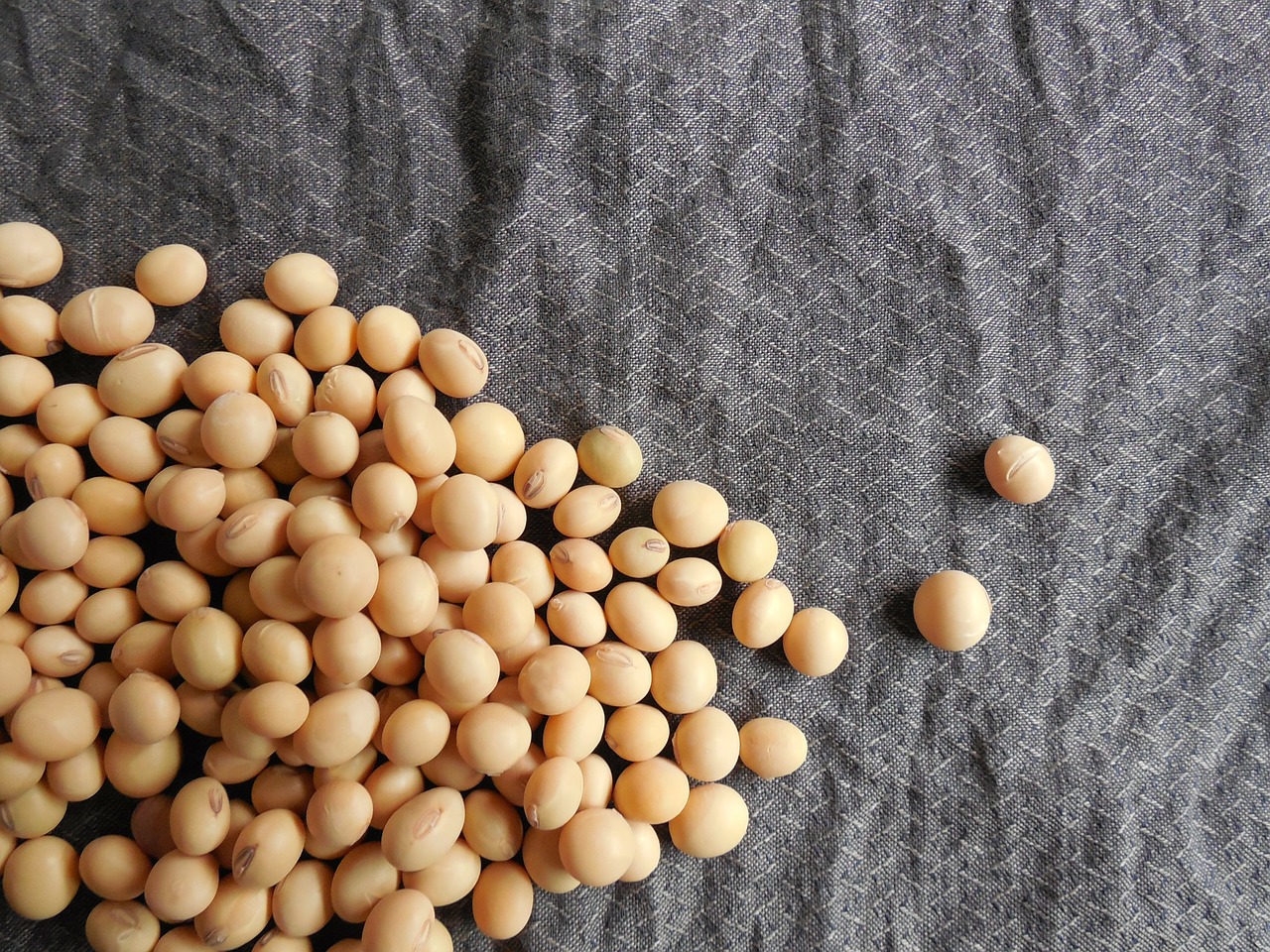 Soy – good or bad?
Soy – good or bad?
I went to buy a litre of soymilk recently, and the lady serving me commented “oh, I heard that stuff is bad for you!”
Wait,…what? Who would think it’s not only ok, but almost their duty to warn a perfect stranger – about to buy one of their shop’s goods – about the dangers of soy! Anyway, I smiled and told her that I’d drunk this ‘stuff’ for years (since 1983 for the record!) and it was perfectly healthy.
Apart from the dubious practice of making negative comments about a customer’s product choices, this demonstrated to me the power of propaganda against certain plant foods. And yet, I can’t really blame her. It seems that on a regular basis there’s some crack-pot article or online diatribe about the many ‘dangers’ of the humble soybean.
Recently on some website called ‘Living Traditionally’ (whatever that means!) they posted an article with the catchy (some might say hyperbolic) title of ‘Top 10 Shocking Reasons to Avoid Soy Milk’. Apparently, according to this article, drinking soymilk is “destroying your health”.
To summarize, some of the allegations listed were that:
- 99% of soy is genetically modified (truth: most commercial soymilk brands state ‘GM free’ on their cartons);
- soymilk contributes to vitamin B12 deficiency (truth: most soymilk brands are fortified with B12);
- the isoflavones in soy cause breast cancer (truth: according to Dr Joel Fuhrman, “…it appears that isoflavones have a number of anti-cancer effects that are unrelated to their ability to bind the estrogen receptor”)
- plant estrogens found in soy, called phytoestrogens, disrupt endocrine function and lead to infertility and breast cancer in women (truth: again, Dr Fuhrman advises: “the large body of evidence that convincingly suggests that whole and minimally processed soy foods protect against breast cancer”)
Other articles on soy make all sorts of sensationalist claims, and would have the nutritious soybean and its food derivatives cast as a toxic villain of international conspiracy proportions.
Some of the other main claims against soy are that:
- Soy causes malnutrition and digestive distress
- Soy increases the risk of cancer and heart disease
- Soy consumption is linked with immune system breakdown, thyroid dysfunction, cognitive decline, reproductive disorders and infertility.
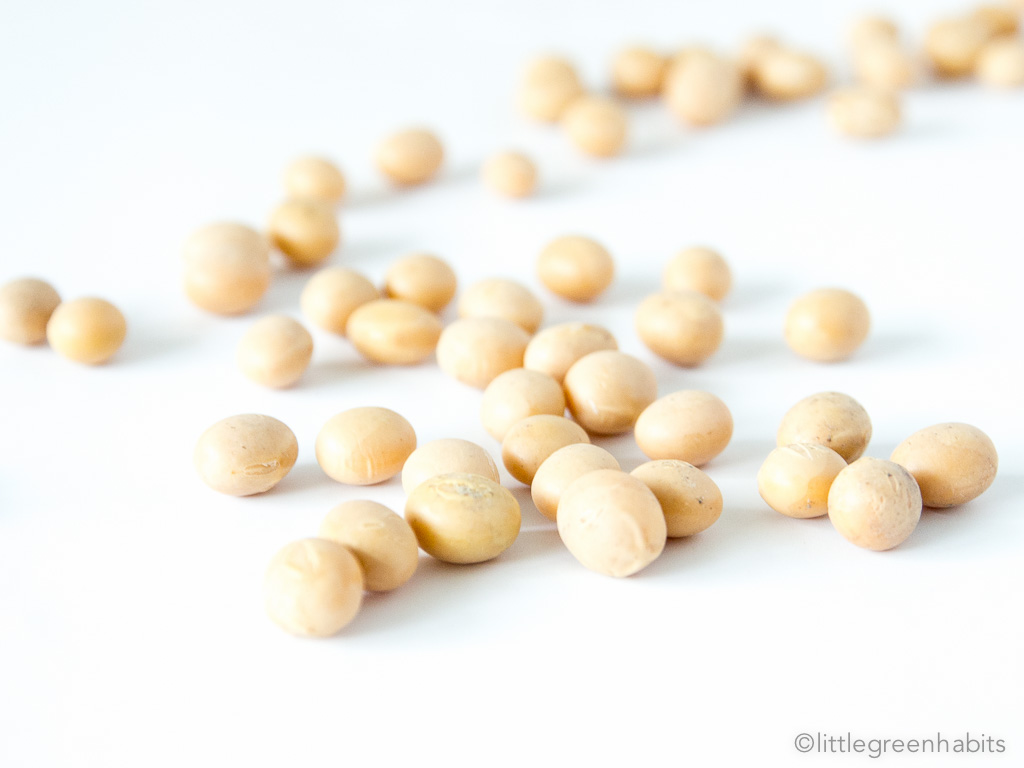
Soy doesn’t stop you having babies
The last claim of soy causing infertility has no basis in reality. I have been a vegetarian – and now vegan – for 33 years, and successfully produced 4 children. A vegan brother of mine, another big soy consumer, has 3 big healthy boys. None of the vegetarian or vegan men I know of or have heard of have experienced any fertility problems. That is not to say it has never happened, but there is not a shred of evidence to show that men (or women) who consume high levels of soy have greater fertility problems, on average, than the rest of the population. Indeed, the huge populations of big soy consumers in Asian countries such as China and Japan would suggest this claim is more than a little fanciful!
Soy is safe for kids
The anti-soy lobby’s claim (led by Joseph Mercola) that we are damaging our children by feeding them soy is not supported by the evidence. An article titled Is Soy Milk Safe for Children? By Shereen Lehman notes that:
“The American Academy of Pediatrics states that soy formulas are safe and effective for infants, and research shows no hormonal effects in long-term feeding of soy formulas.”
A 2005 study compared the nutritional status and growth of 168 infants who were allergic to cow’s milk and were fed either soya-based infant formula or hydrolyzed whey formula. In both groups, nutrient intake and growth were ‘within reference values’ – in other words, they grew normally (Seppo et al., 2005).
All four of my children had soy formula as babies, and still enjoy soy milk on a regular, daily basis. All are healthy and developmentally normal; in fact taller than average for their age.
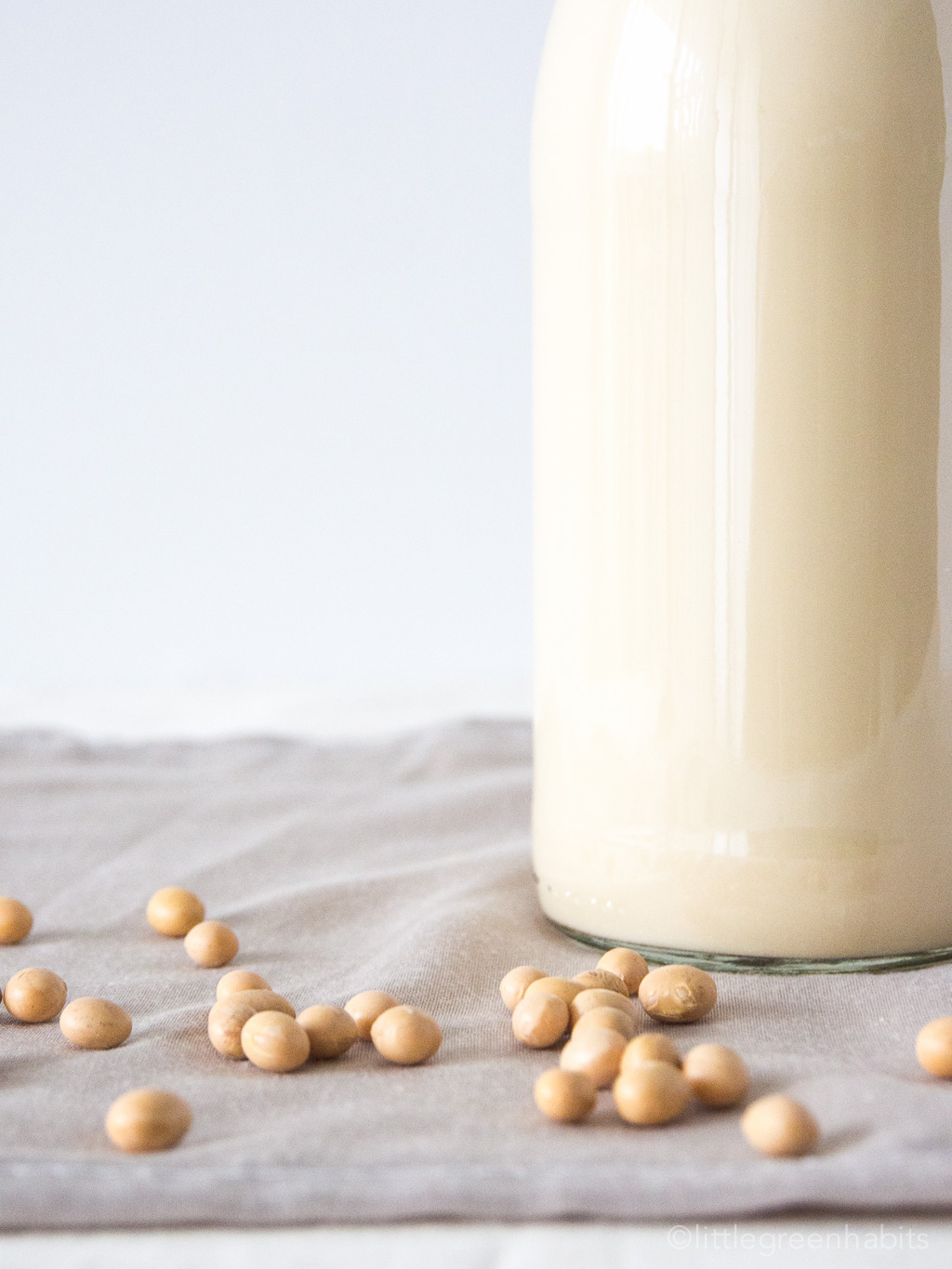
Soy protects against cancer
Most evidence suggests that soy protects against many types of cancer, rather than increases the risk of it. Consider these facts:
- The average Japanese person consumes 50-80 grams of soy food daily
- The average American eats 5 grams of soy a day
- Japanese people have much lower rates of colon and lung cancer than Americans
- Japan has the lowest rate of death from heart disease for men in the world, and the second lowest for women
- American women are 5 times more likely to die from breast cancer than Japanese women
- American men are 5 times more likely to die from prostate cancer than Japanese men
As noted in an online article by Neal Barnard M.D, Adjunct Associate Professor of Medicine at the George Washington University School of Medicine and President of the Physicians Committee for Responsible Medicine in Washington, DC:
“…regular consumption of at least a modest amount of soy products cut the risk of recurrence [of breast cancer] by 25 percent.”
Dr Joel Furhman advises that:
“…a 2009 meta-analysis of studies on soy and prostate cancer found that higher soy intake was associated with a 26% reduction in risk.”….and also: “soy foods are not only associated with decreased risk of hormonal cancers, but also lung, stomach, and colorectal cancers.”
Soy good for you
As Dr Barnard explains, studies show that soy protein is “highly digestible”.
Dr Barnard also says that soy foods “do not cause thyroid problems in people with normal functioning thyroids”, and that, despite the presence of some phytates in soy, studies show that “calcium [in soy products] is absorbed as well as calcium from cow’s milk.”
The good news is that tests have shown that soybean protein is equivalent in quality to protein found in beef, milk and egg white. Soybeans are packed with iron, zinc and calcium; are high in fibre; low in saturated fat and contain no cholesterol. Their polyunsaturated and omega 3 fats help lower blood cholesterol and prevent blood clotting.
Want more proof of the health benefits of soybeans?
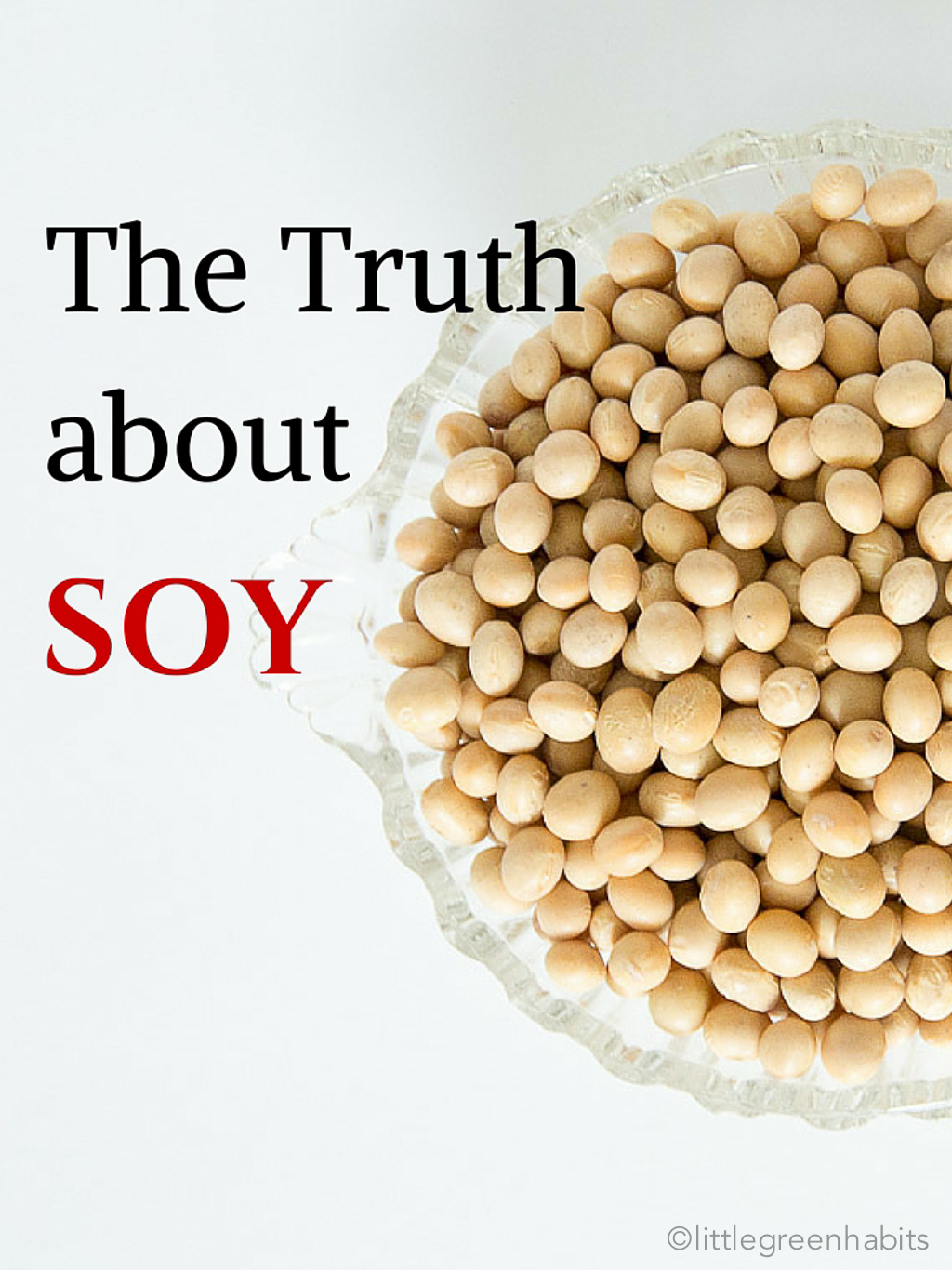
The Truth about Soy’s health benefits
The Victorian government’s Better Health Channel (with information produced in consultation with and approved by Deakin University here in Melbourne) states that:
“Soybeans are members of the pea (legume) family of vegetables…and contain hormone-like substances called phytoestrogens that mimic the action of the hormone oestrogen. The health benefits of soy for menopausal women could include fewer hot flushes, protection from coronary heart disease (CHD) and lowered risk of osteoporosis.”
This website lists all the other health benefits of soybeans:
- high in fibre
- high in protein
- low in saturated fat
- cholesterol free
- lactose free
- a good source of omega-3 fatty acids
- a source of antioxidants
- high in phytoestrogens.
The incredibly versatile soybean can be consumed in a myriad of forms, including miso; soy breads and cereals; soy cheese; soy milk; soy flour; soy grits and soy flakes; soy meats; soy pasta; soy sauce; soy snacks; soy bean oil; tempeh; Textured Vegetable Protein (TVP); tofu, and tofu desserts such as soy ice-cream and yoghurt.
As always, for optimal health I recommend that you focus mainly on whole soybeans, or foods made with whole soybeans, and traditional soy foods with minimal processing, such as tempeh and tofu.

Meat eaters consume the most soy
With all the anti-soy propaganda around, perhaps the ultimate irony is that people who eat pork, beef, chicken, dairy and fish indirectly consume the most amount of commercially farmed soy.
According to online reports by the soy industry:
“about 85% of the world’s soybeans are processed, or “crushed,” annually into soybean meal and oil.” Nearly all (98%) that soybean meal is further processed into animal feed. Most of the oil (95%) is consumed as edible oil; the rest is used for “industrial products such as fatty acids, soaps and biodiesel.”
So, if you genuinely want to boycott the commercial, GM soy crop industry, you have only one choice: avoid consuming edible oils (better for your health anyway) and to go vegan!
Final word on soy
I urge you to pay no heed to the ‘chicken littles’ who would convince you the sky will fall down if you consume some tempeh, soymilk or tofu. I have happily consumed soy products for over 30 years, and as part of a healthy, balanced diet I, and my family, can heartily recommend them (just quietly, so can billions of other people all over the world, too!).
Bean appetit!
Tom Perry
Further References:
The Book of Tofu, by William Shurtleff and Akiko Aoyagi
All You Need to Know About Soy – Sanitarium Health Food Company
Soy Miracle, by Earl Mindell
Eat to Live, by Sue Radd and Dr Kenneth Setchell

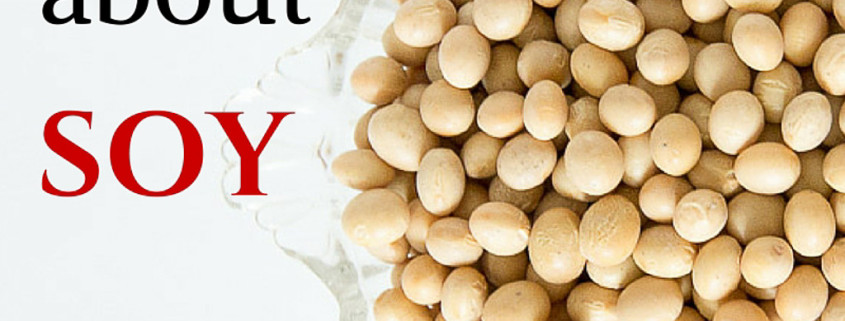


Great read Tom! Thanks for debunking these myths :)
Thanks for your feedback Brendon!